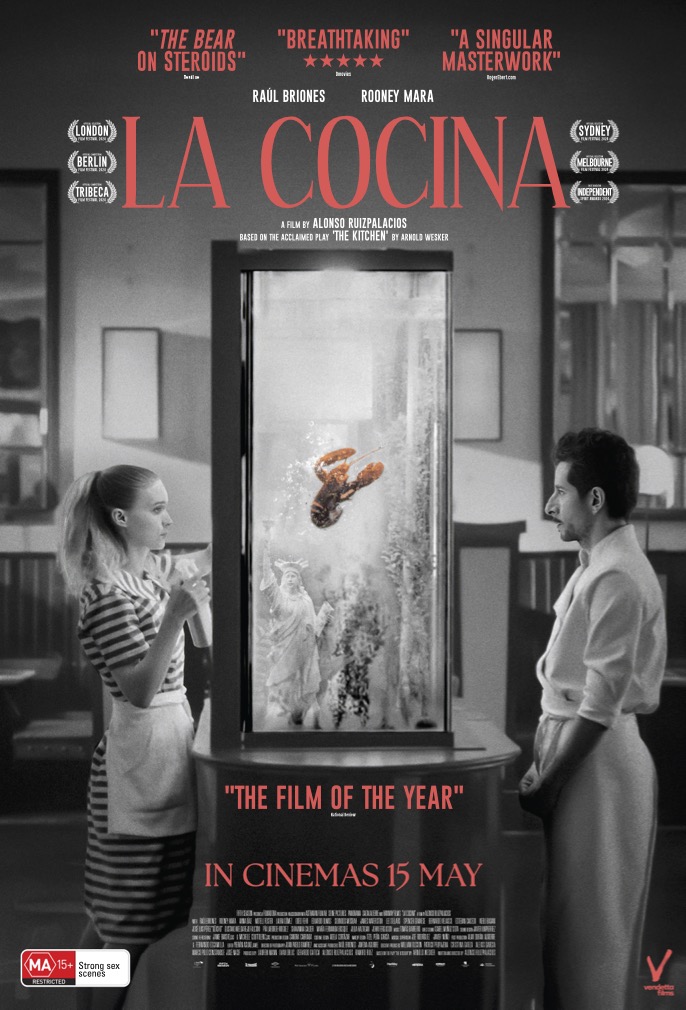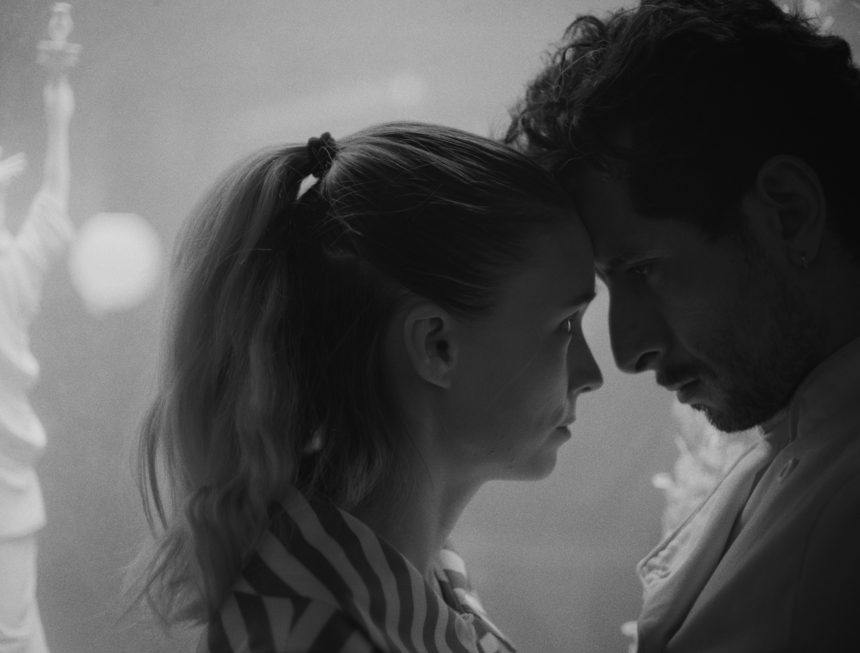This sweaty back- of- the- kitchen drama takes us through some punishing shifts at a huge tourist restaurant called The Grill. It’s bang smack in the middle of Times Square, New York City, and the industrial machinations that come from feeding hundreds and hundreds of people on a loop are stylistically choreographed on a grainy black and white film, that not only accents the laboriousness of the work, but makes it timeless. The uniforms of waitstaff in places like this feel like they’re straight out of the 50s. What else hasn’t changed in these kinds of establishments is the poor pay, the greedy managers, and the structural advantage that is taken of those on the edges of society- the undocumented, the unschooled, people coming out of or still entangled with the justice system. All couched in the age old adages that workers are lucky to be there. Customers fill their bellies unaware of the hard knock lives that are playing out behind the swing doors.
At the heart of the story is a Mexican chef Pedro (Raúl Briones) and American waitress Julia (Rooney Mara) and their steamy and damaged love affair. There’s also a small but effective turn from Anna Diaz as Estela the restaurant rookie. Besides the romance and the workers constant yearning for settled status, the stakes are raised higher when $800 goes missing from the till. Terrible consequences await for anyone found guilty, and interview scenes between staff and management are another plotline driving the action forward.

Directed by Alonso Ruizpalacios
Produced by Ramiro Ruiz, Alonso Ruizpalacios, Gerardo Gatica, Ivan Orlic, Lauren Mann
Director of Photography Juan Pablo Ramírez
Editor Yibrán Asuad
Music Tomás Barreiro
Executive Produced by Marco Polo Constandse, Jose Nacif, William Olsson, Patrick Pfupajena
In cinemas May 2025
Nominated Golden Bear – Best Picture at Berlinale 2024
Nominated Best Director (Alonso Ruizpalacios) and Best Cinematography (Juan Pablo Ramírez) at Independent Spirit Awards 2025
Winner Best Screenplay at Stockholm Film Festival 2024
Starring Raúl Briones, Rooney Mara, Anna Diaz, Motell Foster, Laura Gomez, Oded Fehr, Eduardo Olmos
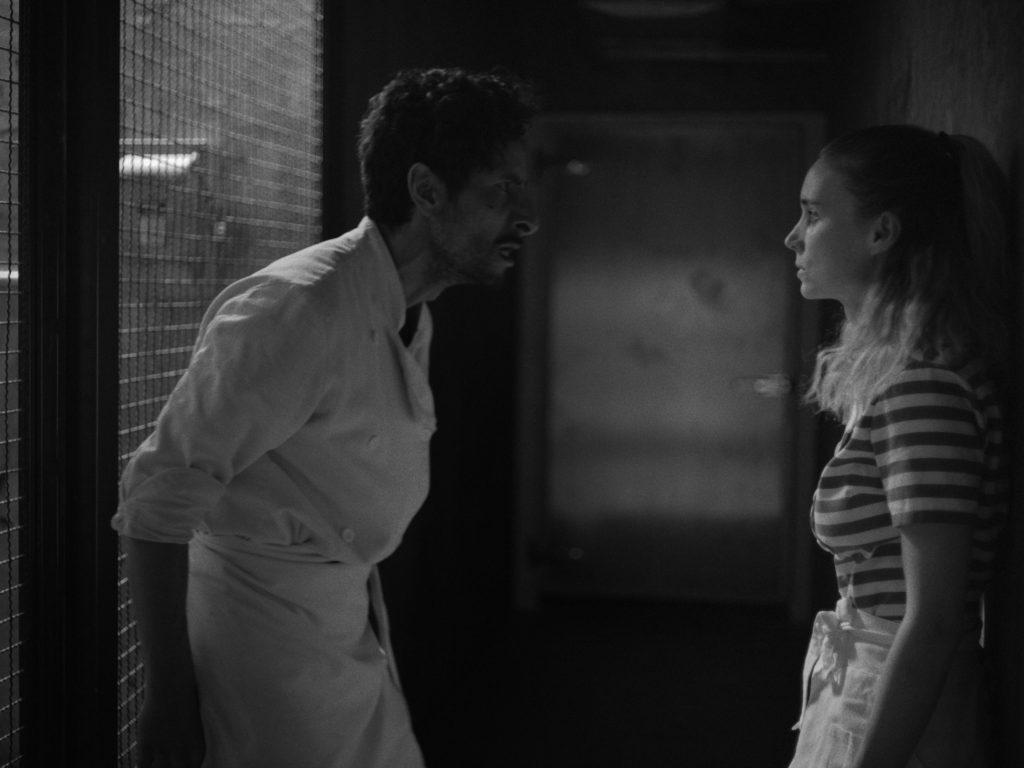
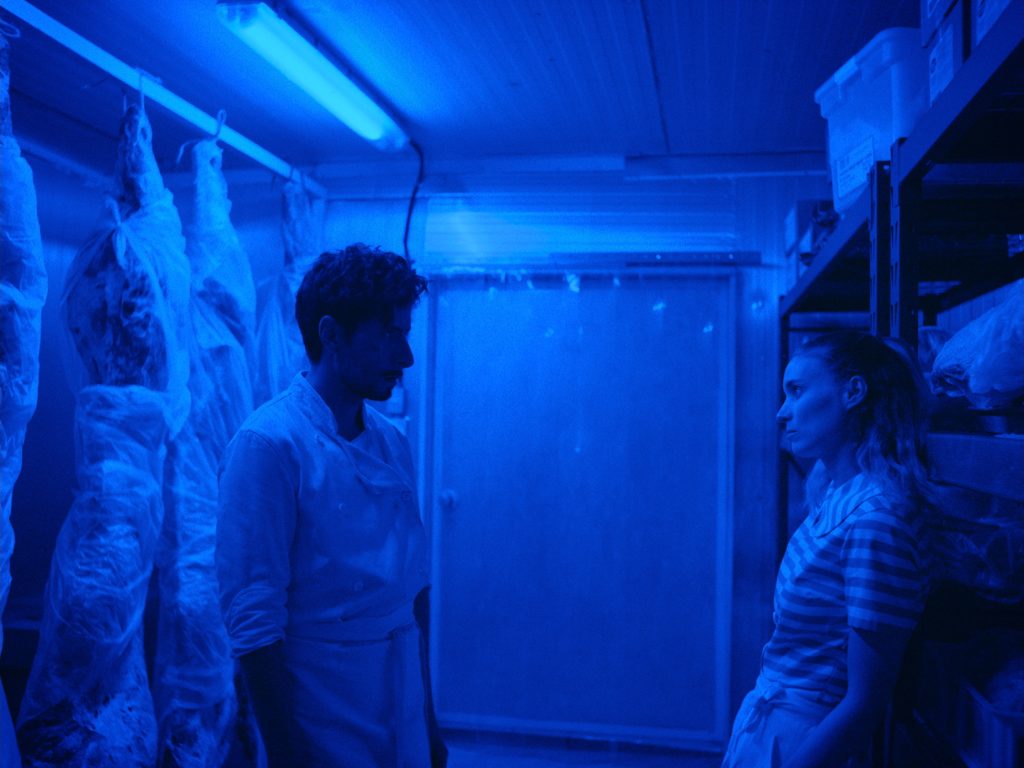
La Cocina is based on Arnold Wesker’s 1957 play The Kitchen. That story was set in London, and the Mexican writer-director Alonso Ruizpalacios found the inspiration to reimagine the play when he himself was slogging it out in a tourist trap of a similar ilk on London’s Charing Cross Road.
He said, “I started daydreaming about this film when I worked as a dishwasher and a waiter at the Rainforest Cafe in downtown London during my student days. Which was also when I first read Arnold Wesker’s play The Kitchen, on which the script for this film is loosely based. Reading the play at the same time that I was working in an industrial kitchen made the experience much more interesting (and the work-days bearable). I was struck by the complex caste system that still exists in kitchens, and that are an essential part of what keeps them functioning. As with the crew in a ship, hierarchy is not something that is taken lightly behind those swinging restaurant doors.”
The scenes can feel a little hemmed in by the original source material, and the film can seem like one of those that has too obviously been reenacted from a play, but at the same time such constraints lend themselves to the flamboyant choreography that is necessary in those kinds of workplaces. A busy kitchen like this one is a dance, and everyone has to keep up. We see disaster strike when one player doesn’t know their moves.
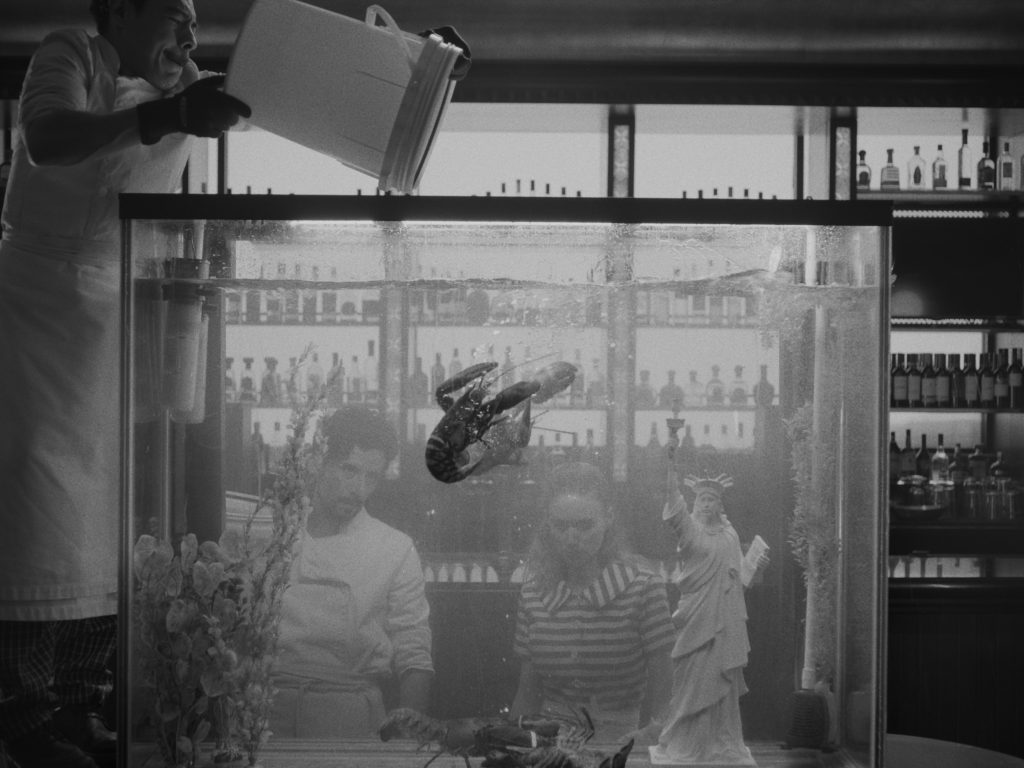
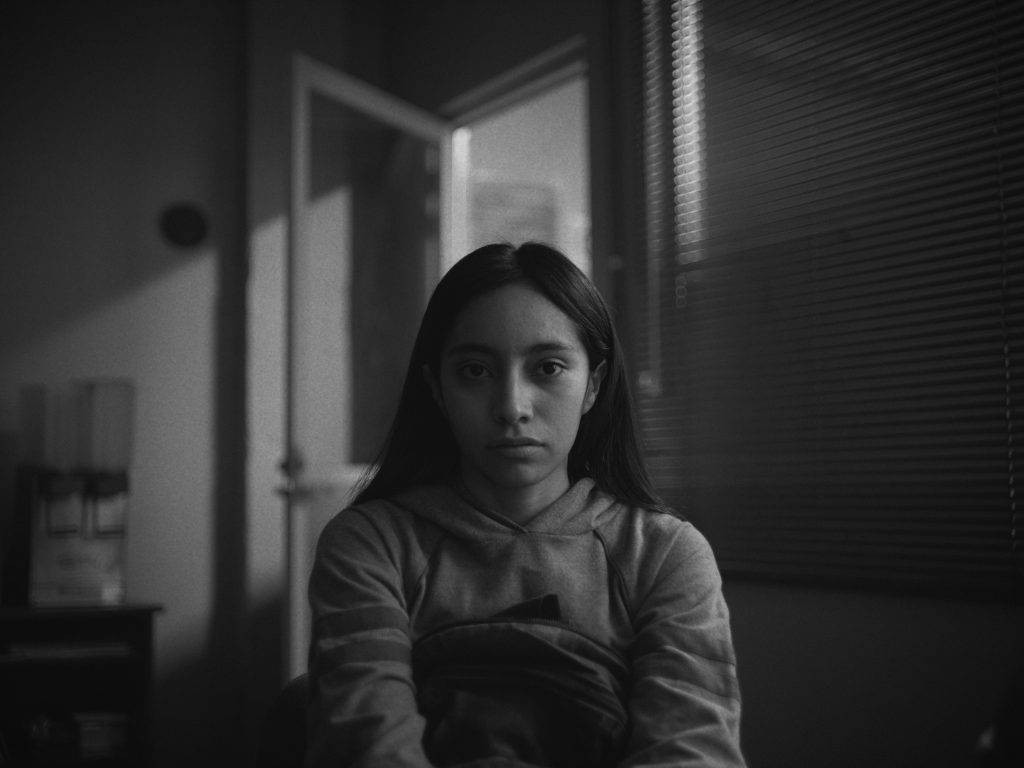
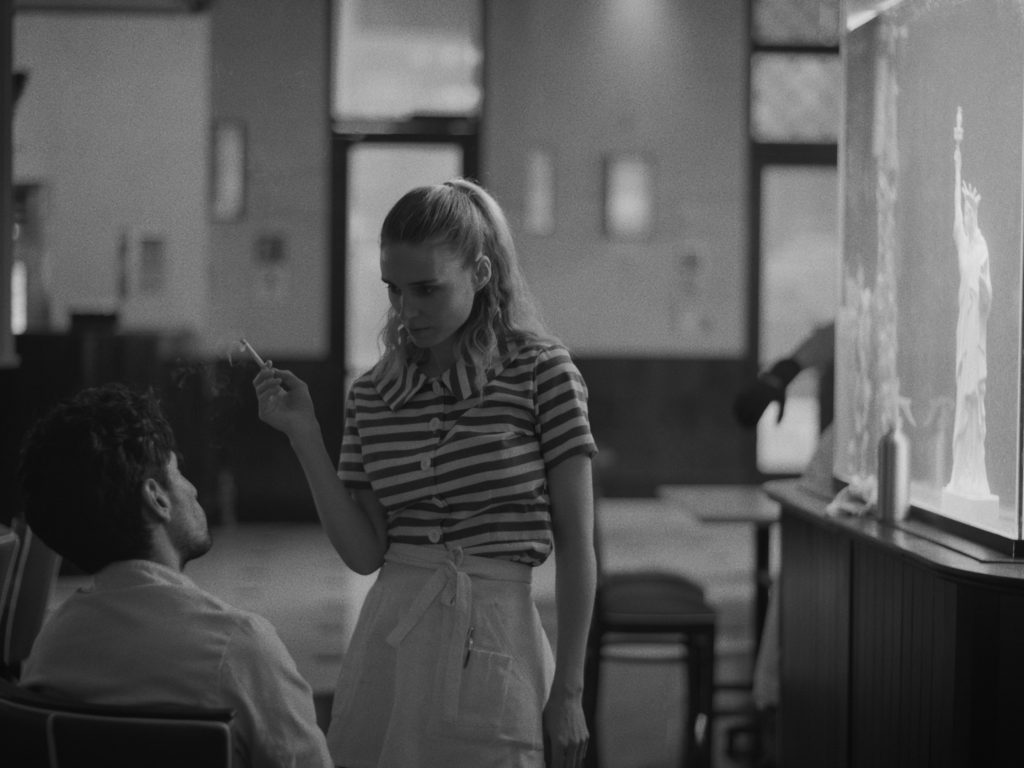
There’s a wonderful moment when all the workers keep going despite the kitchen completely flooding. With the manager cracking the whip and demanding they splash their way out the doors and get the plates to the tables, its hard not to think of how many bugs and diseases the average punter is being exposed to in an establishment like this, let alone sweat and spittle.
The dance continues with the language, the Spanish and English spinning around each other, with the workers often referring to each other by their country of origin, as they fight and tease and flirt with each other, trying to lay claim to something like a life while barely having time to look up from their labours.
Time rolls around, the shifts come and go, and there’s a sense of endlessness to the turning around of the work. The intense speed is broken up with scenes in the back alley, where staff go for a smoke break, and with visual pauses resting on something relatively beautiful that allows a worker a moment of respite. Each person giving up their days to the functioning of La Cocina, and every one of their stories, is a wonderful feast and an elegantly shot portrait. It’s also a reminder of how, as income inequality ramps up worldwide, somewhere behind every successful business, there’s often a bunch of barely rewarded slave-employees at the bottom of the capitalist pile, making it all happen.
